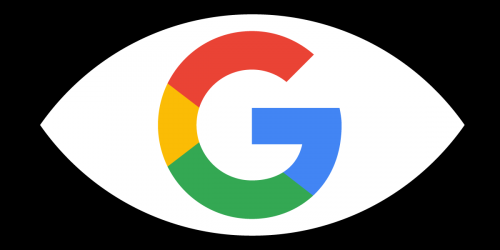A lawsuit filed in New York federal court last week against the creator of the “Shitty Media Men” list and its anonymous contributors exemplifies how individuals often misuse the court system to unmask anonymous speakers and chill their speech. That’s why we’re watching this case closely, and we’re prepared to advocate for the First Amendment rights of the list’s anonymous contributors.
On paper, the lawsuit is a defamation case brought by the writer Stephen Elliott, who was named on the list. The Shitty Media Men list was a Google spreadsheet shared via link and made editable by anyone, making it particularly easy for anonymous speakers to share their experiences with men identified on the list. But a review of the complaint suggests that the lawsuit is focused more broadly on retaliating against the list’s creator, Moira Donegan, and publicly identifying those who contributed to it.
For example, after naming several anonymous defendants as Jane Does, the complaint stresses that “Plaintiff will know, through initial discovery, the names, email addresses, pseudonyms and/or ‘Internet handles’ used by Jane Doe Defendants to create the List, enter information into the List, circulate the List, and otherwise publish information in the List or publicize the List.”
In other words, Elliott wants to obtain identifying information about anyone and everyone who contributed to, distributed, or called attention to the list, not just those who provided information about Elliott specifically.
The First Amendment, however, protects anonymous speakers like the contributors to the Shitty Media Men list, who were trying to raise awareness about what they see as a pervasive problem: predatory men in media. As the Supreme Court has ruled, anonymity is a historic and essential way of speaking on matters of public concern—it is a “shield against the tyranny of the majority.”
Anonymity is particularly critical for people who need to communicate honestly and openly without fear of retribution. People rely on anonymity in a variety of contexts, including reporting harassment, violence, and other abusive behavior they’ve experienced or witnessed. This was the exact purpose behind the Shitty Media Men list. Donegan, who after learning she would be identified as the creator of the list, came forward and wrote that she “wanted to create a place for women to share their stories of harassment and assault without being needlessly discredited or judged. The hope was to create an alternate avenue to report this kind of behavior and warn others without fear of retaliation.”
It’s easy to understand why contributors to the list did so anonymously, and that they very likely would not have provided the information had they not been able to remain anonymous. By threatening that anonymity, lawsuits like this one risk discouraging anyone in the future from creating similar tools that share information and warn people about violence, abuse, and harassment.
To be clear, our courts do allow plaintiffs to pierce anonymity if they can show need to do so in order to pursue legitimate claims. That does not seem to be the case here, because the claims against Donegan appear to be without merit. Given that she initially created the spreadsheet as a platform to allow others to provide information, Donegan is likely immune from suit under Section 230, the federal law that protects creators of online forums like the “Shitty Media Men” list from being treated as the publisher of the information added by other users, here the list’s contributors. And even if Donegan did in fact create the content about Elliott, she could still argue that the First Amendment requires that he show that the allegations were not only false but also made with actual malice.
EFF has long fought for robust protections for anonymous online speakers, representing speakers in court cases and also pushing courts to adopt broad protections for them. Given the potential dangers to anonymous contributors to this list and the thin allegations in the complaint, we hope the court hearing the lawsuit quickly dismisses the case and protects the First Amendment rights of the speakers who provided information to it. We also applaud Google, which has said that it will fight any subpoenas seeking information on its users who contributed to the list.
EFF will continue to monitor the case and seek to advocate for the First Amendment rights of those who contributed to the list should it become necessary. If you contributed to the list and are concerned about being identified or otherwise have questions, contact us at info@eff.org. As with all inquiries about legal assistance from EFF, the attorney/client privilege applies, even if we can’t take your case.









